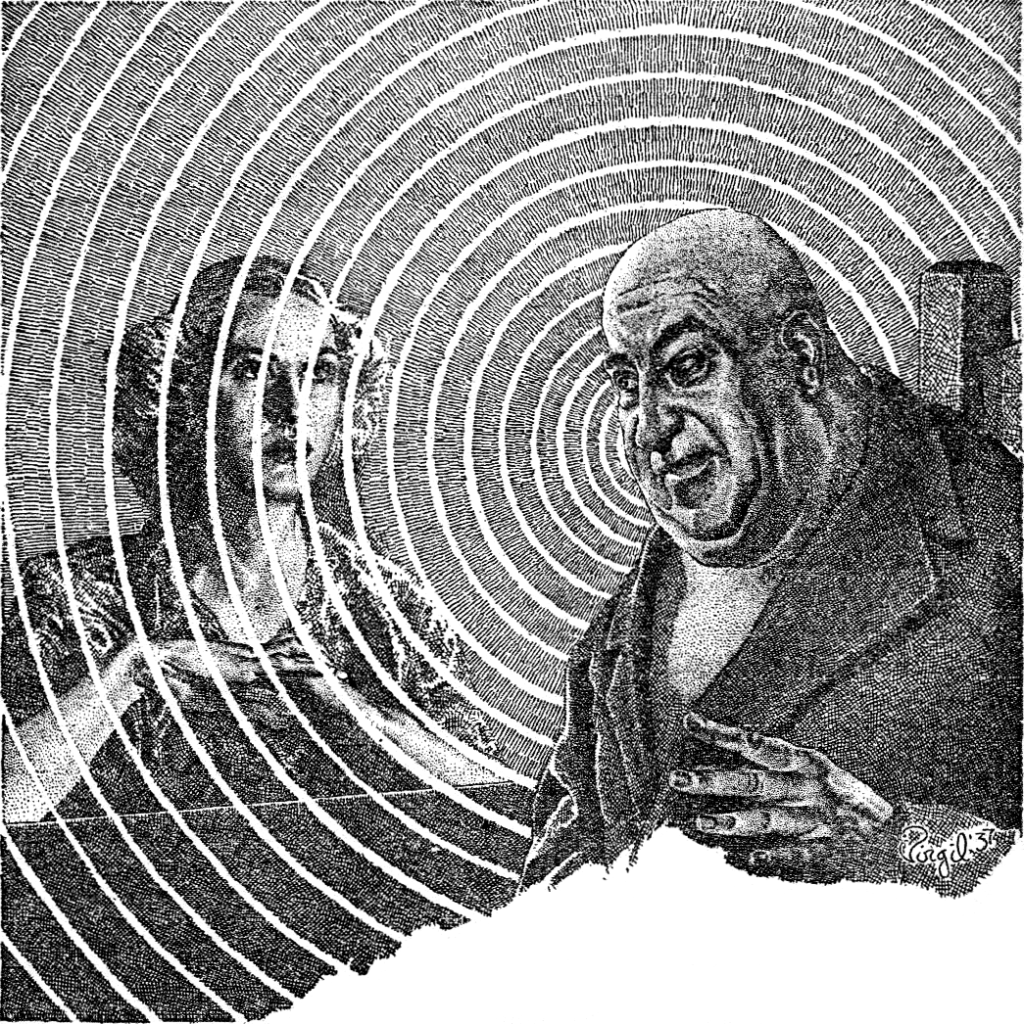When I started working on Rational Magic, I was thinking about how common fantasy elements from D&D would translate into a rational setting. I knew I would be creating a fantasy analog of a post-singularity sci-fi setting. That was the point; I originally created the setting as a way of tricking some D&D players into playing a sci-fi game. I knew there would be some things like resurrection, teleportation, and golem labor that had direct analogues. These would be the world-altering “magi-technologies” that defined the setting. (Although I had not read it at the time, I realize “Tippyverse” took this rational concept and applied it just to teleportation)
While I was watching the TV show “Merlin” (one of the many episodes where people do things because they were under a “charm”), I realized there is a critical technology I had not considered: mind control. And suddenly I realized that Rational Magic would be a dystopian setting. I also realized I had a problem on how to handle mind-control in the rules.
In Rational Magic, mind control is a common. Mind Control often takes the form of spells which infect their target with suggestions, impulses or fears. These spells are called Geas. It’s best to think of Geas spells as a type of “code virus” which infects a character. The character can resist it. The character (especially player characters) can be aware that it exists.
Originally, I though of mind-control attacks as something that would decrease hit-points. I didn’t like hit-points. More importantly, my playtesters told me they can accept dying as a result of HP loss, but will not accept mind-control as a result of damage. So I borrowed an element from Legends of the Wulin. Geas spells create Conditions.
Like all Conditions, players can role-play the Condition, role-play why the Condition is not applicable, or apply -1 to the Talent on a Roll related to the Condition. Furthermore, player characters can try to “lawyer” the rules of Geas Conditions within the Game World. That means they can do things which seem to violate the “spirit” of the Geas spell while following the “letter” of the Condition.
I later read a book called “The Nightmare Stacks” by Charles Stross. In this book, an advanced Elf society utilized Geas webs to control their own society. Geas spells made people bound to the order and commands of one’s superiors in a social hierarchy. But these Geas could be “lawyered” using selective logic. Characters did this in order to pursue their own interests which don’t align with the parameters of the Geas. This is how I envision mind control to work in Rational Magic.
Now, characters can be completely mind-controlled such that they can change faction allegiance or adopt certain world views. This is called “Imprinting”. NPCs can be Imprinted by player characters; this is mechanically represented by using Lore Sheets to describe the relationship between the Imprinted NPC and a player character. Usually, the GM will require that the character is first Taken Out with a Geas attack before player characters can create relevant Lore Sheets.
Player characters can also be Imprinted after receiving Geas-related Conditions, but only if the player agrees for this to happen. I want players always have agency over their characters. Players can choose that their characters “give in” to the Geas spells. This is represented by the player re-writing the character Theme to reflect the change in the character’s description. After this happens, Conditions related being Imprinted are removed from the character sheet (these are basically accounted for in the new Theme). Then GM can offer the players new Lore Sheets describing their new relationship with the mage that Imprinted their character.
If the player doesn’t want to be Imprinted, that’s OK. They will just be highly conflicted and have an in-game meta-awareness of this condition. It’s sort of like living in a society where you are subjected to propaganda. My philosophical view on this is that some people will succumb to the mind-control spell of the news programs. Some people understand that what they see on the TV is not real but choose to believe in it anyway. And some people understand the nature of what they see and choose not to believe in it, but have trouble due to cognitive dissonance.

Rational Magic is a game of investigation, intrigue, and espionage set in a gritty “dystopian fantasy” world; a world that evolved from a traditional sword and sorcery setting. Rational Magic uses the Lore Role-Playing Game (RPG) System, purpose-built for this game.
You can see SRD here. You can download the whole beta-version rule-book, play-test package, and Player quickstart rules at this Google+ folder.
